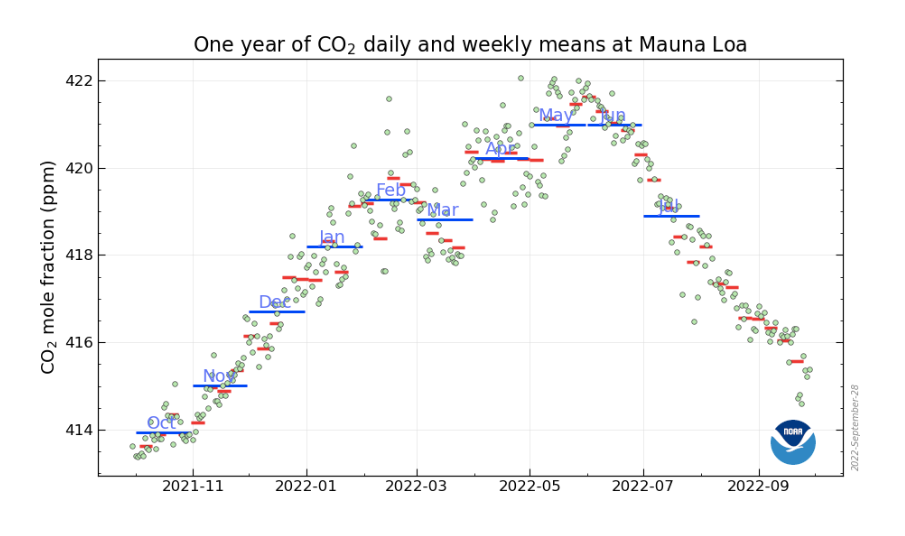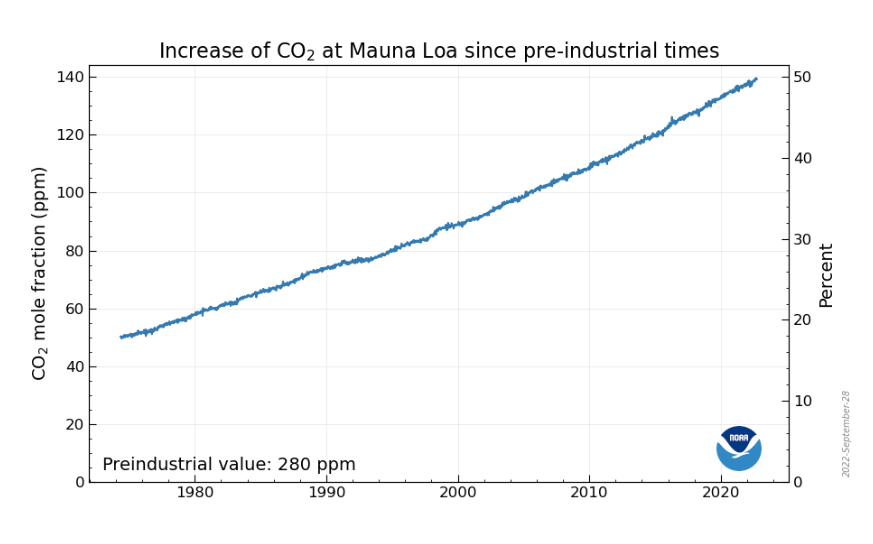Have we learned from the pandemic? - From a Sustainability Perspective


· 4 min read
“Has the pandemic changed anything regarding sustainability?” During REV4.0, a scientific conference on The Socio-Economic Consequences of the Fourth Revolution at the Cracow University of Economics, I replied with a firm “no!”
My reason for that perhaps blunt answer is that GHG emissions reached new heights after an apparent decline during the COVID-19 crisis. For the week beginning on September 18, 2022 -the week of the conference- the Global Monitoring Laboratory in Mauna Loa put the weekly average of CO2 at 415.57 ppm[1]. Exactly one year ago, that average was 413.32 ppm, and ten years ago it was 391.02 ppm. In September 2020, in the midst of the pandemic, the monthly average numbered 414.62 ppm.


The world emits more GHGs than ever before. One can hardly admit that a tragic event like the corona crisis taught us anything about environmental protection.
At the same time, I do agree with my fellow panelist Prof. Carlo Ingrao that more and more people consciously choose to engage in sustainable consumption. Hopefully, this trend continues; it must.
Yet another reason for the decisive “no” is the latest IPCC report. A press release by the United Nations Framework Convention on Climate Change on September 13, 2022, has a title that leaves nothing to our imagination: “United in Science: We Are Heading in the Wrong Direction.”[2] Faced with this reality - a reality worsened by the brutal unprovoked war in Ukraine - one can reach no other conclusion: no.
All of the above does not mean we should surrender, quite the opposite is true. The cliché that it is time for action bores us to death, yet we all must act without hesitation. Perhaps the war can achieve what the pandemic could not; kick us all into decisive action. The resulting extremely high energy costs in Europe bite everyone and let’s hope that that is all that will hurt and we see a rapid end of the killing and destruction by a military apparatus. However, allow me to express my indignation about the inequitable distribution of Ukraine’s grain.
Another fellow panelist, Prof. Linda O’Riordan, hit the nail on the head; the problems we face with the (economic) system find their root causes within that very system. When we try to progress in a system yet that system is the obstacle to progress, then the problem is a wicked one. Changing a (global) system takes time. What we don’t have is time if we are to keep global warming below 2° celsius. Forget 1.5°C, we missed that boat already.
A critical question is what system will collapse before humanity can prevent it, assuming we have the ability to do so. Changing a system, as daunting as it is, is one thing. Experiencing a system collapse is another.
Surrounded by economists I uttered the word that most of them do not like: degrowth. I admit I don’t favor it either, yet only because some societies desperately need growth albeit not the kind that neoliberal capitalism pursues. Replace the word “growth” with “betterment” and I believe our noses will turn in a less destructive direction. One word of caution though: let us not paternalistically and colonially dictate what betterment should mean.
Take a look at the SDGs or Sustainable Development Goals. Out of the seventeen, there is one that has the potential to annul the sixteen others. As long as SDG 8 pursues and measures economic growth by GDP only, it can be likened to the word “but” in a sentence; it negates everything that comes before. GDP is a number that must grow to keep a system alive that causes planetary, biota, and social degradation.
The Holocene created the conditions for the human species to thrive. In turn, humanity creates the Anthropocene that destroys favorable conditions. What global community will rise and actualize the betterment that life in all its forms needs?
Illuminem Voices is a democratic space presenting the thoughts and opinions of leading Sustainability & Energy writers, their opinions do not necessarily represent those of illuminem.
[1] https://gml.noaa.gov/ccgg/trends/weekly.html
[2] https://unfccc.int/news/united-in-science-we-are-heading-in-the-wrong-direction
illuminem briefings

Labor Rights · Climate Change
Steven W. Pearce

Adaptation · Mitigation
illuminem briefings

Climate Change · Environmental Sustainability
Politico

Public Governance · Climate Change
Mongabay

Climate Change · Environmental Rights
El Pais

Effects · Climate Change